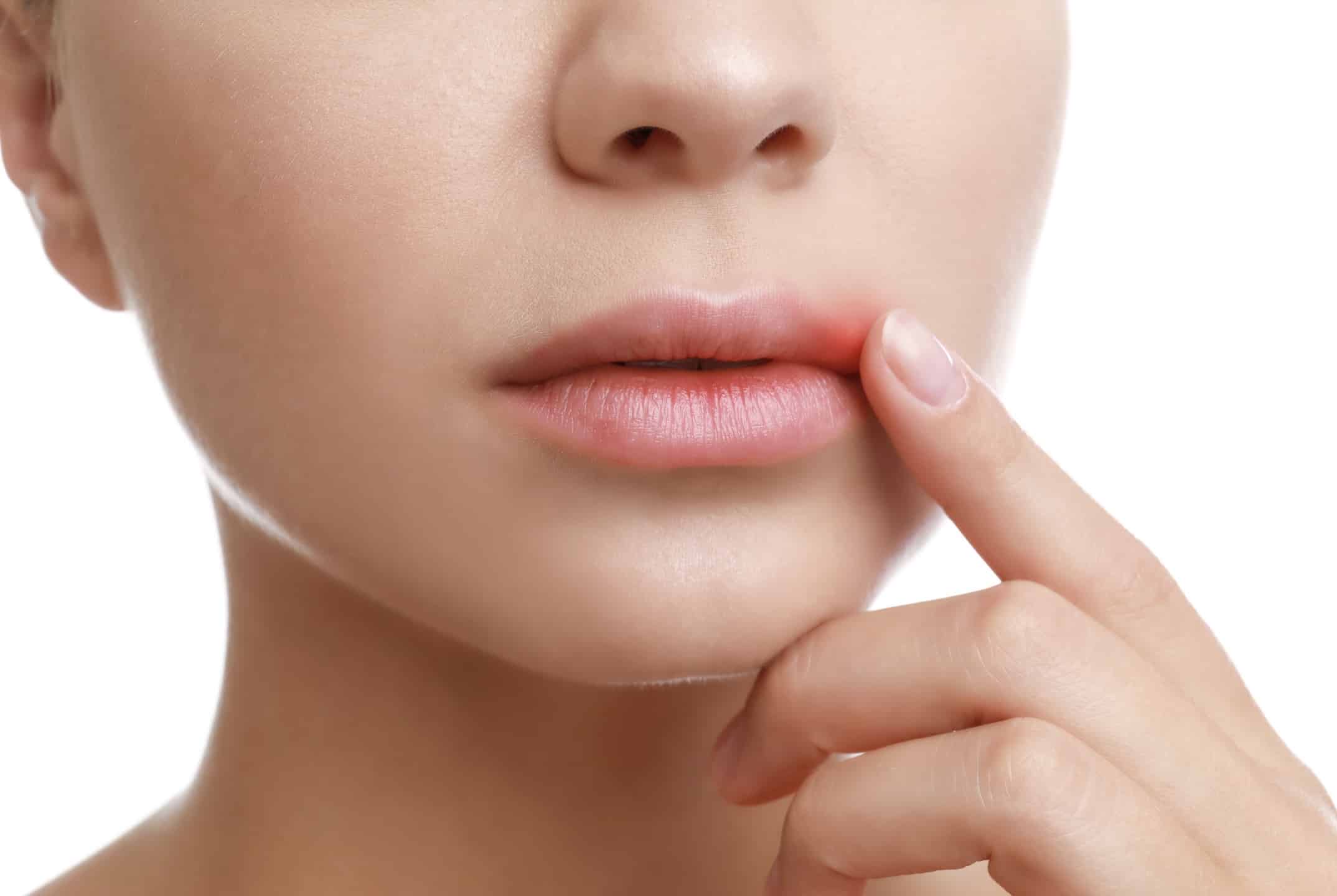Cold sores, or otherwise known as fever blisters, are fluid-filled blisters usually seen around your lips and mouth. The first noticeable sign of a cold sore is when you see a growing spot that can be painful, itchy, and simply discomforting. Cold sores usually form within seven to 48 hours. Your skin will then become red, sore, and swollen. Later on, they’ll break open with clear fluid discharges, and then form crusty scabs before they eventually heal after a few days or weeks.
A person can suffer from cold sores once they have contracted the herpes simplex virus (HSV). As you may have known, the herpes simplex virus has two types, HSV 1 and HSV 2. HSV 1 can cause oral herpes, which forms cold sores around your mouth, while HSV 2 causes genital herpes, which makes you develop cold sores on your genital area.
This infectious virus can enter your body through your mouth or an open break in your skin. It’s most often spread when you kiss an infected person or touch that person’s saliva or the discharged liquid from their cold sores. Even a parent who has a cold sore can spread the infection to their own child. Your cold sores can also grow to the rest of your body if not treated properly.

Once HSV has entered your body, it will remain there for the rest of your life. Thus, cold sores can grow anytime once the HSV is reactivated. However, there are actually ways to help you prevent getting cold sores frequently. Read below for more information about the tips.
Chapter Overview
1. Consult Your Doctor For Proper Treatments
While the infectious virus that caused your cold sores will remain in your body for a lifetime, there are medications that you can take to prevent cold sores from being activated frequently. The doctor can prescribe you pills that can help prevent cold sore outbreaks. You can also use cosmetic products to cover up your cold sores, such as Luminance Red.
2. Wash Your Hands Often
If you currently are in the midst of a cold sore outbreak, avoid touching your sores with your hands. Your hands could have touched numerous objects with germs or dirt that could only worsen your cold sores. Moreover, once you’ve touched the clear liquid discharged from your sores, you can quickly spread it to other body parts, like your eyes, nose, and ears. Thus, make sure to keep your hands clean by washing them often. This will help prevent the spread of HSV to other parts of the body and lessen the risk of worsening it.
3. Manage Your Stress Levels
Everyone knows that too much stress can cause fatigue, and fatigue is actually one of the most common cold sore triggers. Thus, you have to manage your stress levels regularly by at least taking a break every once in a while. The more stressed you are, the more likely your cold sores will keep coming back. Aside from stress, cold and flu are also cold sore triggers.
4. Avoid Sharing Items With A Person Who Has A Cold Sore Outbreak
If you’re one of those who haven’t contracted the herpes simplex virus yet, avoid sharing any utensils and other items with a person with cold sores. The discharged liquid could easily get attached to that person’s utensils or lip products, making it easier to transmit the virus from the following user. As much as possible, use your own utensils, or you can have them sterilized after washing. Medical experts also remind everyone that as much as possible, buy your own lip products and never borrow from anyone because you can never know if that person has cold sores or not.
5. Reduce Your Exposure To Environmental Triggers
Another way to prevent your cold sores from coming back regularly is by avoiding anything that triggers it, like the weather. Conditions such as scorching weather, or below freezing point, or too much wind can all cause your cold sores to erupt. You’re also discouraged from staying under the sun for too long as it can quickly trigger your cold sores in a matter of hours. Instead, always make sure to cover up when the weather is too hot or too cold for you. Additionally, you can also cover up your face with a face mask so air pollution and strong winds couldn’t infect your existing cold sores.
The Bottom Line
Cold sores are known to be painful and irritating, and the worst thing is there’s no cure for them. However, they can be treated. By committing to the tips above, you can prevent yourself from getting cold sores frequently. Also, don’t forget to keep up with the doctor’s medications prescribed to you to make sure your cold sores remain inactive for a long time.

